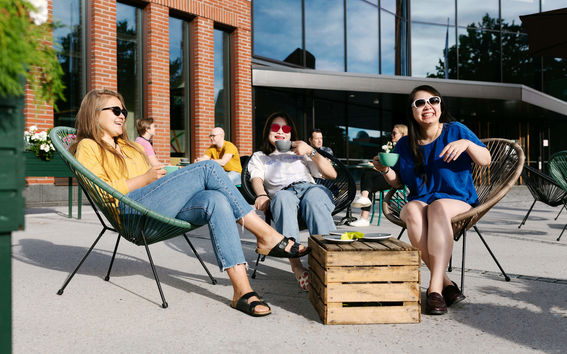Mentoring agreement
Mentoring agreement is a good basis for successful mentoring. It should be done at the beginning of the programme either orally or in writing

A mentoring agreement builds a good foundation for a successful mentoring relationship. It should be done at the beginning of the programme either orally or in writing. The most important thing is not the form of the mentoring agreement but the clarification of the responsibilities, duties and tasks for both parties in the process.
It is good to agree on the following matters in the mentoring agreement:
- Objectives for mentoring
The objectives for the upcoming mentoring season are set together. For some the objectives may already be clear while others may need support in working on them. An open and confidential discussion and utilising the strengths of both parties become key. - Topics and themes to be covered; even the ones you don't want to discuss
- Confidentiality of discussions
- Frequency of meetings
In order to develop and maintain a trustworthy relationship, it is recommended that the mentoring pairs meet approximately once a month during the programme. It is a good idea to schedule the future meetings at the very beginning since lack of time is the most common stumbling block. You should always stick to the agreed times, because rescheduling the meetings weakens the mutual trust and commitment to the mentoring process. - Duration of a meeting
You should reserve enought time for the meetings. Discussions usually take from one to two hours. Sufficient time enables diving deep into the discussion theme. On the other hand, too long a meeting can distract concentration, especially in online meetings. - Meeting place and arrangements
Meeting place sets the tune for discussions and it should be calm. You can meet in a cafe, restaurant or on campus - a lowkey environment create relaxed environment for the conversations. Instead of sitting down, you can try exchanges ideas while taking a walk, excersing together or visiting an exhibition. - Preparations for meetings
We recommend you agree on the preparations for the next meeting each time you meet. The actor can, for example, email the mentor their questions or themes for conversation beforehand, so the mentor will have time to prepare for the meeting. Some pairs may choose to engage in more informal and unstructured conversations. Nevertheless, it is important that the actor reflects on the discussion themes before the meetings, in order for the meetings to run smoothly. - Method and frequency communication between meetings
It is also advisable to agree how the costs of the meeting will be paid (for example, if you meet in a cafe).
Below you will find a simple template for your mentoring agreement.
Tips and tools for mentoring






